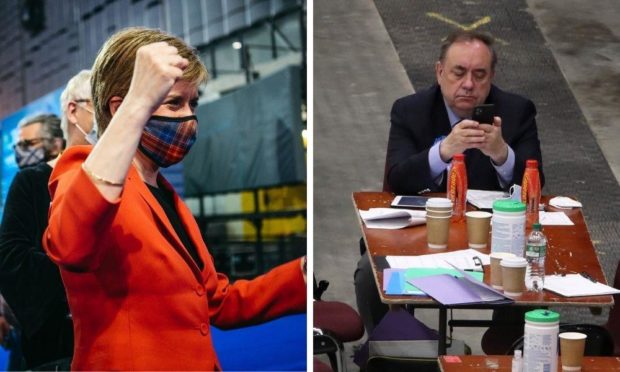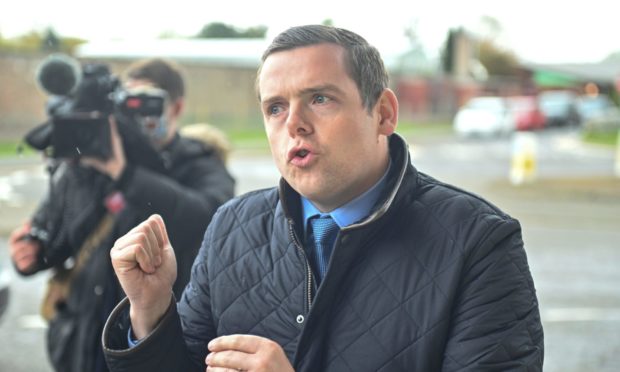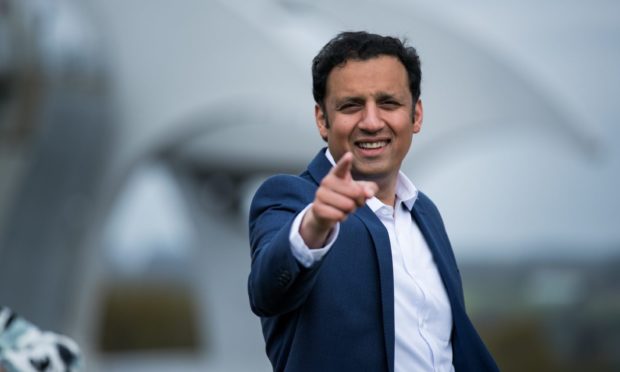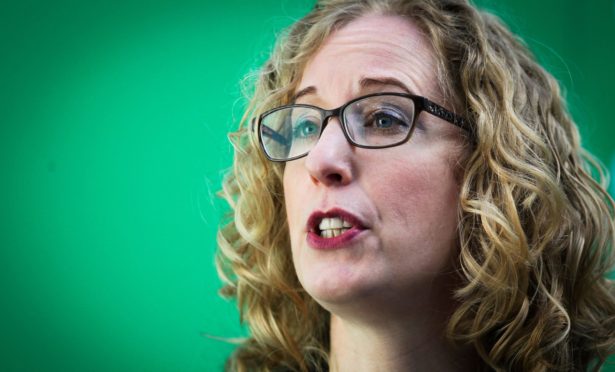Nicola Sturgeon’s SNP won a fourth term in government with 64 seats in the Scottish Parliament.
The party ended up one short of an outright majority in the 129-seat chamber.
After two days of counting, the results leave parliament with a pro-independence majority but not much change to the overall picture.
Conservatives under leader Douglas Ross ended up with 31 MSPs – the same as before the election.
Scottish Labour dropped back two seats, losing one in the Highlands, but held on in what had been the tightest contest in the country.
Greens made big advances to add two to their tally in regions, including the North East. They have eight MSPs – twice as many as the Scottish Liberal Democrats who dropped from five to just four MSPs.
How the parties split:
- SNP 64 (+1)
- Conservative 31 (=)
- Labour 22 (-2)
- Green 8 (+2)
- Liberal Democrat 4 (-1)
The results show there were two particular failures on both wings of the unionist and independence movements.
Alex Salmond, the former First Minister, saw his new Alba party fail to make an impression big enough to get in on the regional lists. He did not cut through in his own North East patch.
At the other end of the constitutional spectrum, another former heavyweight – George Galloway – suffered electoral oblivion for what he hoped would be a unionist alliance.
What do the results mean for the new parliament?
First Minister Nicola Sturgeon immediately pointed to the pro-independence majority in a challenge to Prime Minister Boris Johnson.
But the Conservatives insist the unionist bloc and lack of consistent majority support in opinion polls for independence demonstrates a lack of appetite for leaving the UK.
The pandemic, economic and environmental recovery remains the focus, according to party leaders.
Upsets and near misses
The SNP took target seats including East Lothian from Labour for the first time since the first election in 1999, and beat the Tories in previously solid Tory Ayr.
But the proportional system denied them seats on regional lists which saw them lose a government minister, Paul Wheelhouse.
Conservatives in the north-east put up a strong defence and registered big swings from the SNP in places such as Banffshire and Buchan Coast. It wasn’t enough to take a seat from the SNP.
The Conservatives kept hold of West Aberdeenshire, seen as a key test for the SNP if the party had any chance of getting an outright majority.
Tory leader Douglas Ross got in on the Highlands and Islands list meaning he will now be an MP and an MSP – a controversial position to take.
Former Green MSP Andy Wightman could not get enough support as an independent in the Highlands and Islands and won’t be returning.
How did the parties react?
SNP: Leader Nicola Sturgeon said: “Let me set out the task ahead – for me and your re-elected SNP government.
“First and foremost, it is lead Scotland through the pandemic and to keep people safe. That will be my focus when I return to my desk tomorrow.
“It is then to kick-start and drive our recovery with an ambitious and transformative programme for government.
“And, yes, when the crisis has passed, it is to give people in Scotland the right to choose their future.”
Conservatives: Leader Douglas Ross said: “While other pro-UK parties lost seats, the Scottish Conservatives fought the SNP hard all over Scotland and took them on. We have cemented our position as Scotland’s biggest opposition party.
‘Broken her word’
“Predictably, Nicola Sturgeon is already stoking division. Within hours, she has broken her word to voters and is already demanding another referendum. The Scottish Conservatives will keep our promise.
“Our promise was that a vote for the Scottish Conservatives would be a vote to stop an SNP majority – and in so doing stop Indyref2 and get the focus back 100% on the recovery from Covid.”
Labour: Anas Sarwar has led the party for around 10 weeks and lost two MSPs. But he has gained ground in popularity among the public and hopes to make a mark in the coming parliament.
He said: “We are significantly ahead of where we were just ten weeks ago, and I’m incredibly proud of everything our activists have achieved.
‘National recovery’
“Our campaign for a national recovery defined this election campaign, and we will take that energy into the Scottish Parliament.”
Greens: Newly-elected MSP Lorna Green said: “Voters have delivered a pro-independence majority in the Scottish Parliament, with the Scottish Greens playing a vital part, and it is now incumbent on Boris Johnson to recognise that democratic mandate.
“The Scottish Greens will continue our constructive role in the Scottish Parliament, which has seen us improve lives in Scotland and protect our environment, from fairer taxes, free public transport and protecting Scotland’s nature.”
Lib Dems: Leader Willie Rennie did well in North East Fife but ended up in the smallest group.
He said: “It is frustrating that we weren’t able to move the dial in other constituencies and on the regional lists. Some were up, others down. We will take the four seats that we have been given into the next parliament.
“The issues we highlighted will be important in the next five years. Those are mental health, early years education, an industrial strategy for recovery, and action on the climate emergency.”



